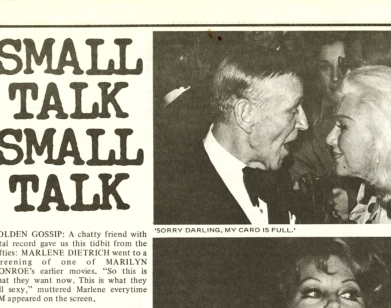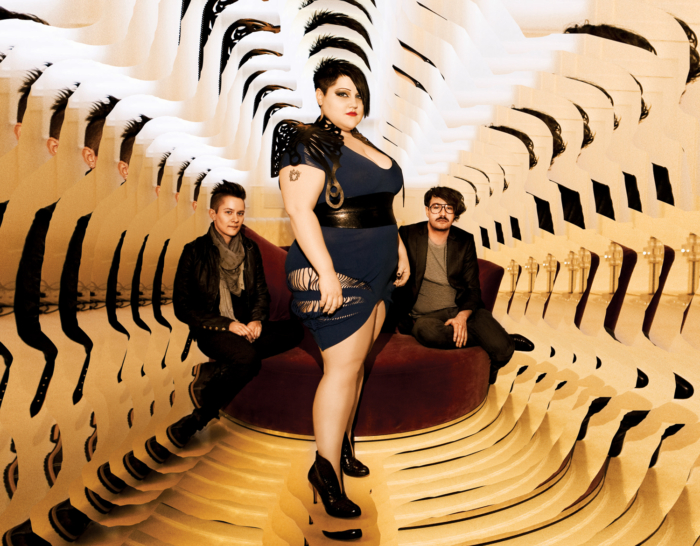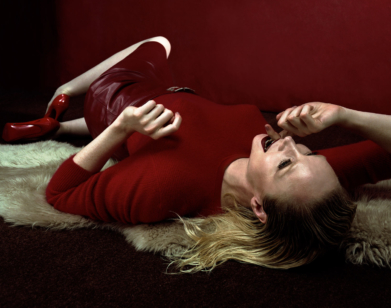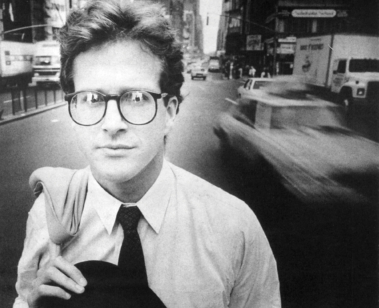“Suzy” was the high profile Gossip Girl of New York society for decades
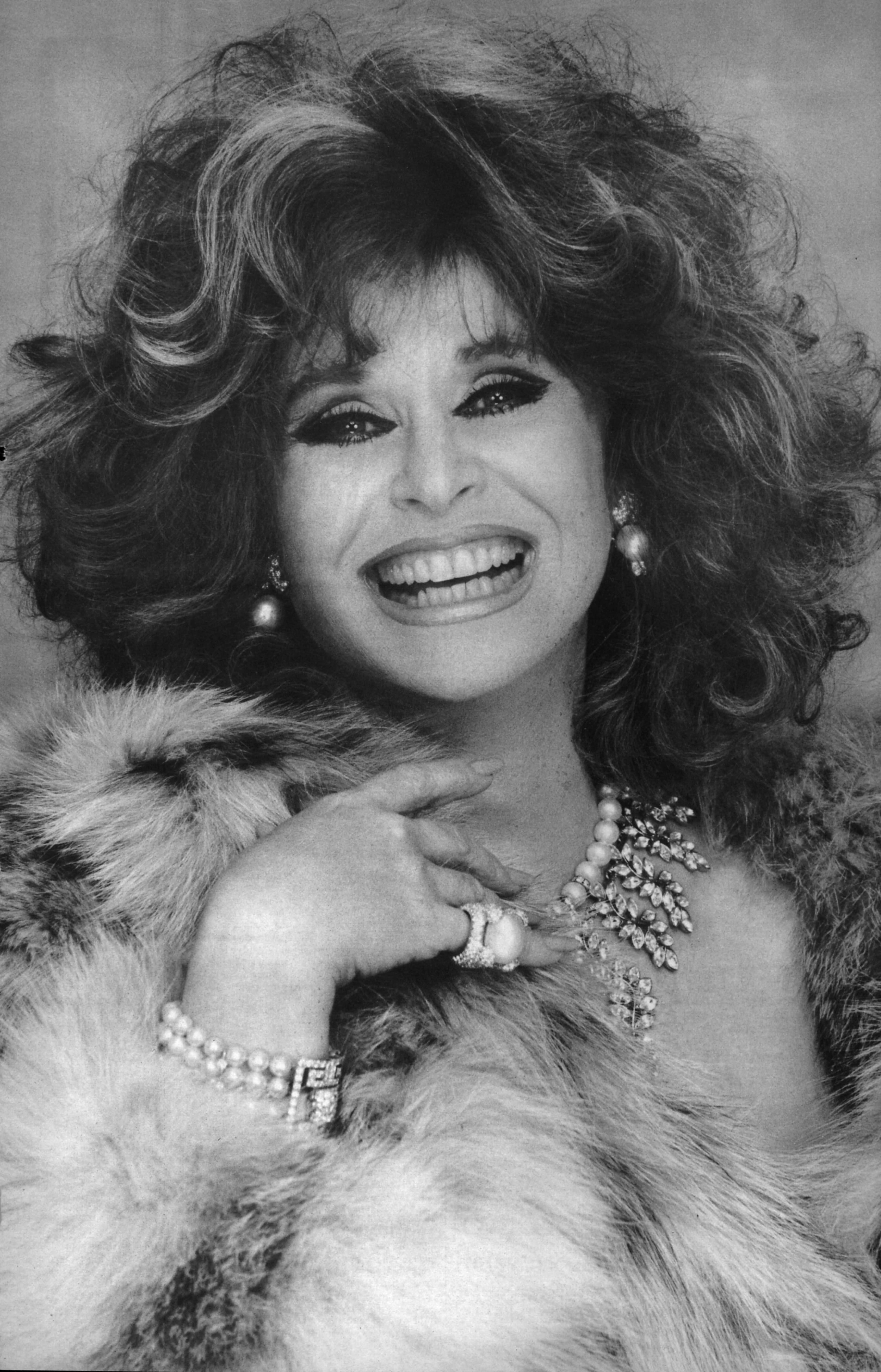
AILEEN MEHLE (SUZY) PHOTOGRPAHED BY GORDON MUNRO. HAIR AND MAKEUP: SEBOU. STYLING: KATE HERRINGTON. FUR: J. MENDEL/ELIZABETH ARDEN SALON, N.Y. JEWELRY: KENNETH JAY LANE. COSMETICS: LANCOME.
Not since Truman Capote’s Black and White Masked Ball more than two decades ago has there been so much razzle and dazzle, glitter and glamor, all for the glory of Aileen Elder Mehle, known to column readers around the country as Suzy.
Suzy has been seducing and surprising her readers for 30 years with teasing talk and tantalizing tales. And they love it. So on November 4th, 60 of New York’s most influential Ladies, the kind she writes about, decided to pay her back in style with a Gold and Silver Ball Masque in her honor that Suzy insisted be a benefit for the Memorial Sloan-Kettering Cancer Center. That’s the way she is. And although the ball did rival Truman’s famous tour de force, Suzy does not like being compared to Truman and his naughty deeds. Suzy likes to be a friend to the people she writes about.
Her friends called the night at the Grand Ballroom of the Plaza Hotel “In Celebration of Suzy,” and rightfully so. Aileen Mehle has a lot to celebrate, primarily her recent move to Rupert Murdoch’s New York Post for a deal even Suzy couldn’t resist.
One thing is for sure, Suzy is a winner. She has outlasted and out-scooped every other social columnist who has ever dared to attempt to dominate New York’s social world through the written word. She gets at least ten invitations a day to the best parties in town and admits she simply picks the ones that are most newsworthy. Once she accepts an invite she never cancels. And as far as the hostesses are concerned, once she accepts their party, they know the night is bound for glory.
But who is this Texas-born powerhouse who slyly takes on the world’s richest and most powerful with such wit and style? “I’m a Gemini,” she says, “I can go from fiddy, frivolous, to deadly serious and I do. However, I don’t have time for introspection, reflection or meditation. I’m just trying to get a job done.”
And then there is the other Suzy who admits, “I have what Bill Buckley calls X-ray vision. He says I can see through all of us. That I can spot a phony… and I can. I think it’s a gift. I’m seldom wrong about people. When I see someone and I don’t get a good reaction, that feeling almost never changes. No, I can’t say never. I have made two mistakes about people and I married both of them.”
AILEEN MEHLE: He was, I think, the best-looking man I ever saw in my life. I almost had to marry him because he was so good-looking. After we were divorced, I got contacted by The New York Mirror, who had seen the columns I had done in Miami. They wanted me to do it and they had just fired their society columnist. So I said, “No, really, I can’t do it. I haven’t lived in New York for a long time. I’ve been living in Florida and Washington. I couldn’t possibly write a New York column.” And they said, “Well, come on up here, anyway, and let us talk to you.”
LINDA ASHLAND: And the rest is history.
AM: I began to write three columns a week under the name of Suzy. They would put me on a different page each day. And I knew nothing. I was a total novice, but I loved them all, and they loved me, so I became a big hit. It was so fast. So then, the Hearsts said, “Suzy has to be anchored,” which means put on the same page every day. Now, nobody had been anchored on that paper except Walter Winchell. He was on page ten. He was on the descendency; his star was not twinkling as bright as it had been. So they put me on page six. They used my picture, and I was no longer anonymous. They started advertising me on the trucks. They’d say, “Suzy’s on fire,” “Suzy’s the hottest thing in town.” That’s the way I started in New York. And when the Mirror closed, I went to the Journal American and became Suzy Knickerbocker, and then I went to the World Journal Tribune, and when that closed, I went to the Daily News, and now I’m with the New York Post.
LA: You were sort of an overnight star, in a way.
AM: Well, it did happen fast. The Hearsts thought the column was great. Then time came for me to sign a contract with the Journal American, and at that time, every paper in New York except The New York Times was after me. So, I thought to myself, as I was going to have lunch with Kingsbury Smith, the publisher of the Journal American, “Shall I tell him this so that I can get a salary raise, so he’ll realize how in demand I am?” Then I thought, “No, no, no. I’m just going to sit there and listen to him.” We sat down, and he said to me, “Listen Aileen, I know all the other papers in New York are after you.: So I didn’t have to say anything. He said it for me.
LA: What do you think it was that made your column so special?
AM: Well, style, wit, an attitude, an opinion, common sense, along with a sort of teasing, tongue-in-cheek send-up.
LA: And accuracy.
AM: My first thought when I write a column is accuracy. I try very, very hard to be accurate. If it’s a rumor, I say it’s a rumor. I don’t like blind items; I almost never use them. I check as best as I can; in fact, I check and re-check. That doesn’t mean that you win every time, but it does mean that your accuracy is very high, and your credibility goes right along with your accuracy. First I want them to believe me. Secondly, I want to be readable. And thirdly, whatever’s left over is the whipped cream. Also, I never take anything seriously, unless the time comes when something should be taken seriously, and then indeed I do.
LA: How do you decide whom to put in your column?
AM: It’s just whoever happens to be doing something at the moment. And if they fit in with the people I think should be in my column.
LA: What kind of people?
AM: Certainly it’s the upper crust in the society world and in the world of showbiz because I throw out a little of both. The people who have the most money have the most bang, the most style.
LA: Do you feel powerful?
AM: Not at all.
LA: No?
AM: Of course, there’s power, it’s the power of the printed word. It doesn’t really matter what kind of writing you do. I always say, if you have a “houses for rent” column or a “pets for sale” column, you already have a certain power, because you appear. I would rather be called influential than powerful. I would rather have people feel that perhaps I influence more than I…that I sway, perhaps, their feelings about something.
LA: Compare the kind of people whom you write about today to the ones you were writing about in the ‘60s.
AM: The way it has changed is that money doesn’t talk anymore; it shrieks. And so the people who have money care more about entering this social, hectic, out-every-night life, and seeing themselves written about and talked about—
LA: The social climbers…
AM: I discuss social climbers quite a lot because I have nothing against them per se. I always say we’re all trying to climb in some way or other. We’re trying to do a better job, we’re perhaps trying to get to the top in some way. But, as I’ve said before, many people who have succeeded in every other area have not made it socially. And that is when they start thinking about being part of what they consider the glamor [aspect of success].
LA: What do you do when you’re no working?
AM: I take a vacation, I go and visit my friends, where it’s cozy and easy and beautiful. I don’t think about anything except having a good time. I most often spend my summers in Europe.
LA: Is there anything that you haven’t done that you’d like to do?
AM: Anywhere I want to go, I can go. So I tend to go to places that I love best, to be around the people that I like the best and the people who make me laugh.
LA: What kind of people are those?
AM: My kind of people. People who are very clever, who love to have a good time. I cannot stand being around dumb-bunnies; I just can’t take it. I talk about this to my friends all the time, and they say they feel exactly the same way. They just want to be around sharp people who make them laugh and who make them happy.
LA: You don’t want to hear anyone’s problems?
AM: No, I hear their problems all the time. I hear their problems all the time.
LA: Do you think you’ll ever marry again?
AM: I don’t think so. I think twice is enough. I see so few marriages that I envy. I think marriage, if it works, is the ideal arrangement, but it works so seldom, and somehow I think it’s better to just love them and not marry them. What would I do with a husband? What would a husband do with me?
LA: Do you have any future plans?
AM: No, my future is all taken care of. I’m contracted for quite a long—
LA: You’ll be doing this forever.
AM: Well, not forever, but for a while.
LA: What else in life are you proud of that you’ve done?
AM: I’m very proud of my son. He has been a great source of joy to me, mostly because of his sense of humor and a giant brain. He is a lawyer and an investment banker. He has been a naval officer, as his father before him. My first husband was an admiral. He has made very high marks in everything he has ever done. Of course, just lately, he has been assistant secretary of the Treasury for domestic finance, with Don Regan. So, that’s it, for me.
LA: Is he married?
AM: No, I’m pushing him along.
LA: Do you see him often?
AM: Yes, I do. He lives in Washington now, but I see him.
LA: What does he think of all of this?
AM: He thinks it’s great that his mother is gainfully employed.
LA: Do you spend holidays with him?
AM: Yes, sometimes I do.
LA: What is Christmas like for you?
AM: I don’t even think about things like Christmas.
LA: Do you ever give parties?
AM: Never.
LA: Never?
AM: Once in a while, I have people over. We drink champagne or we have some caviar, and I do that fairly frequently, but I don’t have much time to do it. I am not geared toward those lines.
LA: So you never entertain?
AM: Not other than that. If they come over here for Christmas, then I have hams and turkeys and all sorts of food and cakes and desserts and candies. We have just a huge spread.
LA: Do you get a lot of special Christmas presents, from—
AM: Everybody.
LA: What’s the most extravagant gift you’ve ever received?
AM: Well, I can’t remember. All I know is that I get about 250 presents every Christmas. My friends and I make a list, so that I can say thank you.
LA: Do you send out Christmas gifts ever?
AM: A few. Very few.
LA: What is the best party you’ve ever been to?
AM: I’ve been to so many wonderful ones that it’s hard to say which is the best. In Portugal, there were two balls that stand out in my memory. The Patinio and the Schlumberger parties. Just lately Drue Heinz’ party for her husband’s 75th birthday was the most ravishing I’ve been to, handled perfectly from beginning to end. I wrote three and a half columns on it, which is the most I’ve ever done on anything. But you see, private parties like that don’t happen so often any more. I mean, even the rich in Europe, like Guy and Marie-Helene de Rothschild, who gave the most beautiful private parties, don’t do that anymore. If they give a private party, it’s a small dinner.
LA: How do you get your information?
AM: I get it from everyone. I cannot discuss sources, but they’re from the highest to the lowest to the in-between to the most unbelievable to the where-did-that-come from to…everything, from the top to the bottom.
LA: What is gossip?
AM: Gossip starts on the front page of every paper and ends on the back page of every paper. On the front page there is gossip about people running the world. On the back page there is gossip about sports figures. Everything that is printed is just gossip. Rumors are printed from the beginning of the paper to the end, and I don’t care what paper it is. That happens in magazines, too, unless you’re reading a magazine that tells you a recipe for the best chocolate cake you’ve ever eaten in your life. Then it can still be gossip, because somebody can say, “I ate that and let me tell you what happened afterwards. Three people threw up…” But it’s what makes the world go ‘round because it happens everywhere and at every moment of the day. After all, there is nothing as interesting to people as other people, particularly if those people are glamorous, rich, in the public eye, talented.
LA: Tell me about the days before you wrote any column. Where were you born?
AM: I was born in Texas, in El Paso. My mother’s family is of Spanish descent; there’s very little Spanish blood left in me now. They were pioneers of El Paso. They were Spaniards, from Madrid, who held land grants from the King of Spain, just like the California land grants. In fact, a goodly portion of it may still be called “Ascarate.” That was my great-great-great-great-grandfather’s name, and he was the one who settled there. I was born there. My mother was born there, right on the banks of the Rio Grande River, in a house called Harts Mill, a beautiful house. My grandmother was born there, too. My father’s family came from Louisiana.
LA: What kind of life did you have in El Paso?
AM: It was a wonderful life. Just fun, fun, fun, fun. Boys, boys, boys. Parties, parties, parties. We all had a wonderful time. And I had a lot of wonderful girlfriends, some of whom I’m still in touch with.
LA: What did you want to be when you grew up?
AM: I never thought about it. I read these things about people who say, “I always wanted to be an actress. I knew from the time that I was five that I wanted to be an actress” or “I knew I wanted to be a writer.” But, I don’t know, I just didn’t think about it.


